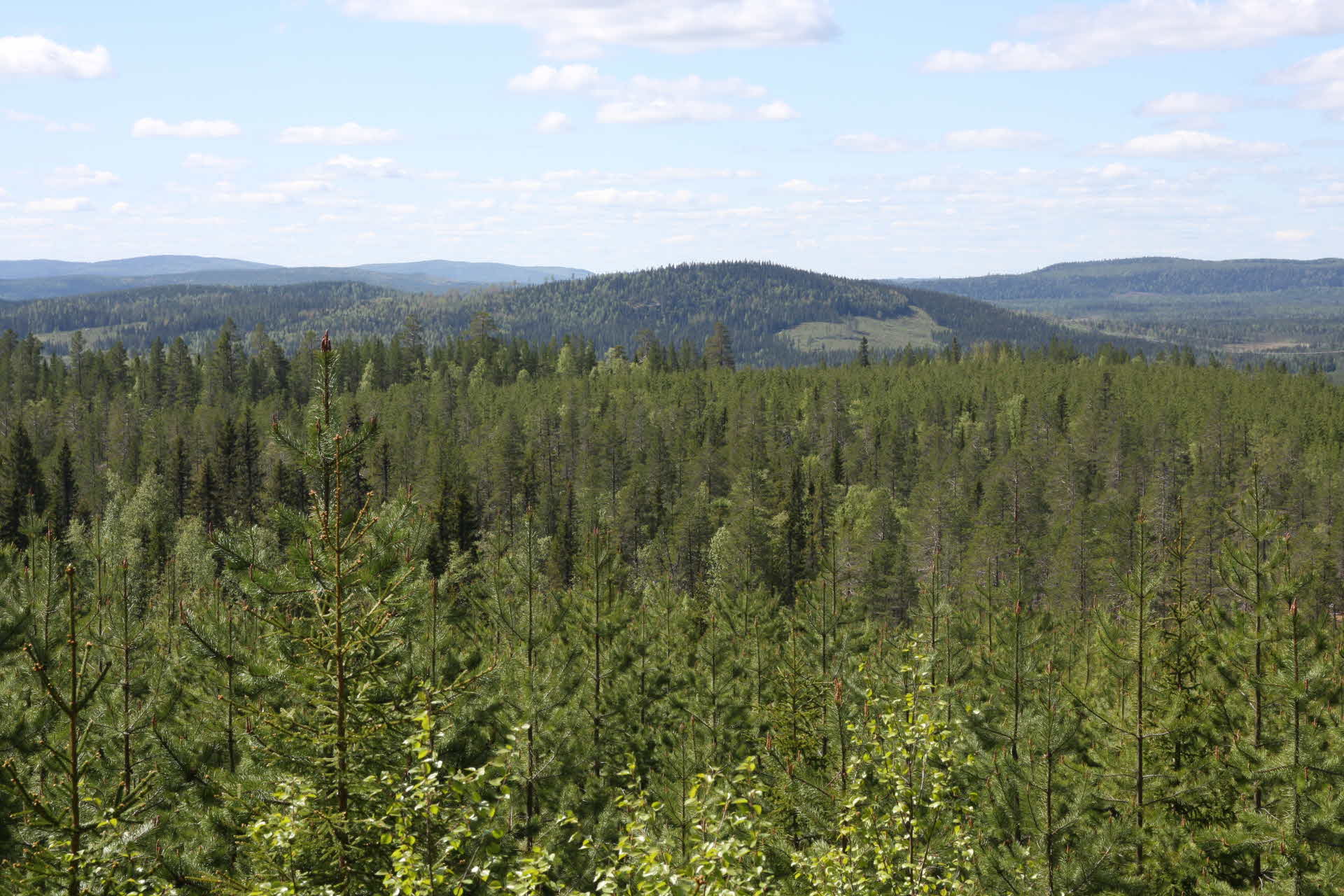
SCAs brev till FSC International
- Nyhet
- Skog
- Koncernnyheter
SCA har nyligen skickat ett brev till FSC International i syfte att inleda en dialog om nödvändiga förändringar för att säkerställa en mer fungerande och praktiskt tillämpbar skogsbruksstandard. Hela brevet finns tillgängligt längre ned på denna sida.
Syftet med brevet är att uppmärksamma att FSC:s skogsbruksstandard över tid har utvecklats i en riktning som inte längre överensstämmer med certifieringens ursprungliga syfte – att stödja ett ekonomiskt hållbart skogsbruk med en balanserad hänsyn till miljömässiga och sociala värden.
I brevet bekräftar SCA även sitt fortsatta engagemang för medlemskapet i FSC, inklusive FSC Controlled Wood, FSC Chain of Custody samt FSC:s skogsbruksstandard i Estland, Lettland och Litauen. Efter den 1 juni 2025kan det dock bli aktuellt att pausa FSC-certifieringen av SCAs svenska skogsbruk, men fortsätta enligt PEFC-standard.
Brevet i sin helhet:
Dear Ms. Bhattacharjee,
SCA has been a dedicated member of FSC for over two decades. We strongly believe in FSC certification as a tool to promote responsible forest management, safeguard biodiversity and build market trust in renewable, bio-based products.
However, we now face significant challenges in the current FSC construct that threaten the short-term and long-term availability of raw materials from responsibly managed forests – and, by extension, the supply of climate-smart, renewable bio-based products, to the global market.
There are some areas where the application or interpretation of FSC requirements in Sweden is creating serious obstacles to sustainable forest operations:
- The role of forests in climate transition
FSC’s current standards and interpretations tend to focus narrowly on conservation and biodiversity, without adequately accounting for the critical role that forests and forest products play in the climate transition. Responsible forest management enables the substitution of fossil-based materials, long-term carbon storage in wood products, and the development of bioenergy and renewable materials. A certification system that does not integrate these climate benefits risks undermining both the goals of the Paris Agreement and the EU Green Deal. We see an urgent need for FSC to adopt a more balanced approach, where climate benefits and biodiversity are considered in parallel. - FPIC (Free, Prior and Informed Consent)
The way FPIC is currently interpreted and applied in the Swedish FSC standard risks transforming a shared planning process into a de facto veto. This has a direct impact on our ability to supply raw material to our industry and conduct long-term forest planning, despite our longstanding commitment to meaningful dialogue and voluntary conservation efforts. - Land-use change
The definition and application of land-use change rules are unclear and, in practice, overly restrictive – especially regarding activities such as wind power development or climate-adapted forest management. Currently, land-use change is capped at a maximum of 1,000 hectares, which limits the ability of large forest owners to implement necessary transitions. This includes, for example, the establishment of wind power for fossil-free energy production or the planting of fast-growing tree species to enhance carbon sequestration in forests. - Governance and representation
We are increasingly concerned that the voices of forest owners and operators are being diluted within FSC’s economic chamber. In the Swedish context, companies without direct ties to the forest sector hold influence over decisions that shape forest management standards. Forest owners currently represent no more than 5 percent of the total membership in the economic chamber, further highlighting the imbalance. This weakens the link between practical forest stewardship and the policies intended to guide it. Combined with growing centralization of decision-making at FSC International, this results in a governance model that risks losing legitimacy among those who manage forests on the ground. A more representative and transparent governance structure is needed to restore trust and ensure balanced, well-informed outcomes. - Level playing field across national standards
Significant discrepancies between national FSC standards are creating an uneven playing field for companies operating in the forest sector. When certification requirements diverge too widely between countries, it leads to competitive distortions – not based on differences in forest conditions or sustainability performance, but on differences in stakeholder engagement and inconsistent interpretations of the same global principles. To maintain fairness, credibility and global relevance, FSC must ensure that national standards are harmonized to a greater extent, while still reflecting legitimate regional differences.
SCA remains fully committed to sustainable forest management and believes in the long-term value of FSC certification. We want to remain part of FSC and be a constructive partner in improving the system. However, we must also ensure short-term and long-term access to raw material for the production of renewable, climate-smart products such as wood products, pulp, packaging material and bioenergy.
Unless we can jointly find a clear and credible solution resolving these systemic issues, SCA intends to take a temporary pause from FSC Forest Management certification in Sweden starting 1 June 2025.
We will remain:
- A member of FSC
- Certified under FSC Controlled Wood
- Certified under FSC Chain of Custody
- FSC FM certified in Estonia, Latvia and Lithuania
This is not a step we take lightly. But it is necessary, under current conditions, to protect our ability to deliver on both sustainability and climate targets as well as our commitment to our customers.
We see this as a temporary pause – not an exit. We want to return to FSC Forest Management certification as soon as conditions allow. To make this possible, we are now seeking open, forward-looking dialogue with FSC International and key stakeholders.
To that end, we invite you and other stakeholders to a joint meeting in Frankfurt, in late April or early May, to begin working together on concrete solutions. We will reach out shortly with proposed dates and practical details.
We believe this is a shared responsibility. FSC is a strong and important system – and we are convinced that, with the right engagement, we can solve these challenges together.
Yours sincerely,
Jonas Mårtensson
President, SCA Forest
Foto överst: Per Simonsson